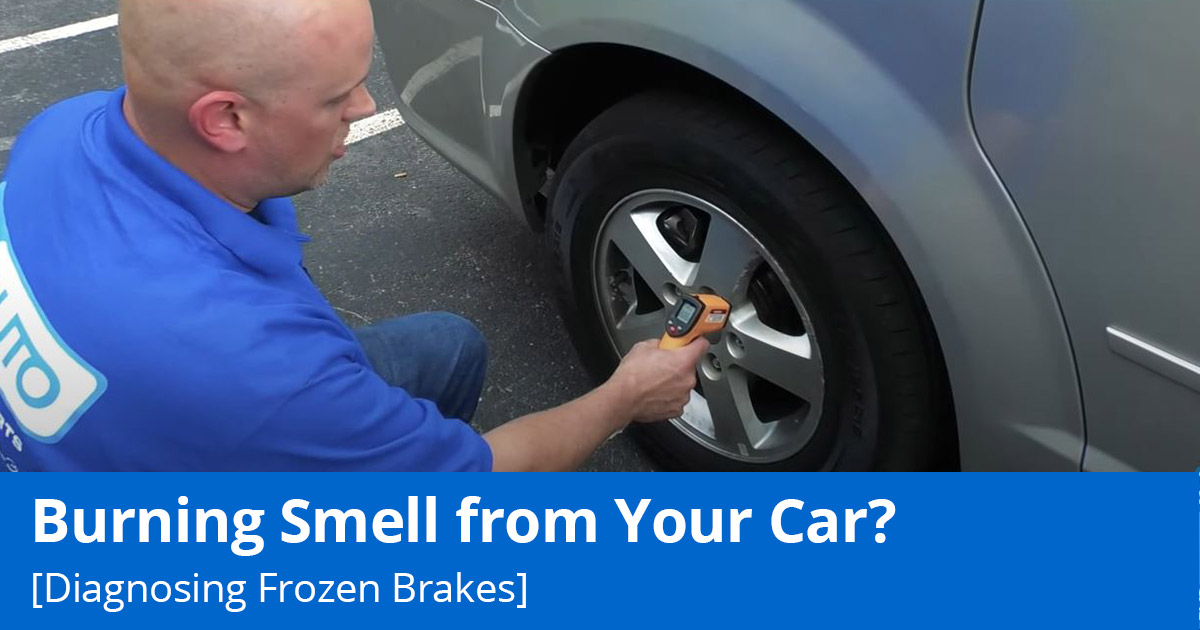
Does your car smell like burning rubber or plastic while driving? Does it smell stronger as you continue to drive? Is smoke coming from the wheels? It could be because your brakes are frozen. Watch the video below or read on to learn the signs and symptoms of frozen brakes and hot to fix them.
How to Find the Frozen Brakes
1. Measure the Temperature of Each Rotor
Test the temperature of each rotor after driving with an infrared thermometer. If one of the rotors is significantly hotter than the others, it may have a brake issue.
2. Turn the Wheels
To test for a brake caliper problem, raise and secure the vehicle on a jack and jack stands. Turn each wheel by hand. If one of the wheels is significantly harder to turn than the others, it might be from a caliper sticking problem. Excessive brake dust on one wheel can also mean a caliper is sticking.

How to Inspect Parts for Brake Freeze
1. Inspect the Rotors for Heat
Remove the wheel and inspect the rotor. A normal rotor will have a cleaner look, and a heated rotor can have discoloration of blue, red, or pink. This means the brake rotor will need to be replaced and possibly the brake caliper.
2. Inspect the Parking Brake Cable or Caliper Lever
Disconnect the parking brake cable on the side that is seizing up. Pull the cable and notice if it is binding up, as it should move pretty easily. If it is binding up, the cable is probably rusted and corroded and will need to be replaced.
3. Check for Blocked Brake Hoses
With an internally blocked brake hose, brake fluid will go to the caliper but not release, causing the brakes to seize.
4. Check for Seized Caliper Pistons
To test if the caliper piston is seized, compress the caliper piston. Some caliper pistons will require the use of a special tool to compress them. A seized caliper piston will not compress properly, causing the brake pads to stick.
5. Look for Frozen Caliper Slide Pins
Another cause of frozen brakes could be the slide pins seizing, and these can be confirmed as the cause with a simple inspection.
6. Look for Frozen Brake Pads
Rust or other contaminants can stick the brake pads to the brake caliper bracket.
In some cases, you may need to replace any of the brake caliper, rotors, pads, caliper hose, and parking brake cable if multiple symptoms appear.
Shop parts and tools featured in this article:
Related Content
- How Long Do Brakes Usually Last?
- How Much Does It Cost to Replace Brake Pads?
- Why Are My Brakes Squeaking?
- Do I Need to Turn Rotors When Changing Brake Pads?
- TRQ Brake parts buying guide: Save time and money with quality brake kits

